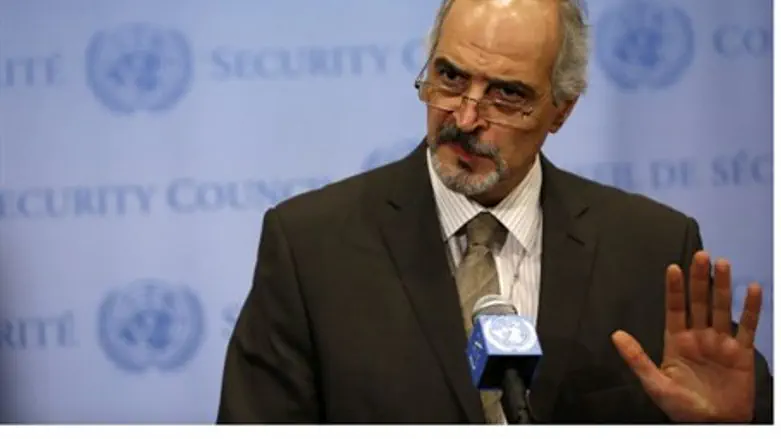
Syrian opposition figures and representatives of the regime of President Bashar al-Assad began talks in Moscow Wednesday, but there was little hope that they would make a breakthrough in ending the country's bloody four-year civil war that has claimed over 200,000 lives.
The talks between opposition groups tolerated by Damascus and a Syrian delegation led by ambassador to the United Nations Bashar Jaafari came as Kurdish forces battled Islamic State (ISIS) around Kobane, after expelling them from the strategic town on the Turkish border.
The rise of Islamic State - which was threatening Wednesday to execute a Japanese hostage and a captured Jordanian airforce pilot - has changed the West's approach to Syria, with some hypothesizing that the warring sides might find common ground in the face of a mutual foe.
But expectations are low for the Moscow-sponsored talks aimed at restarting long-stalled peace negotiations, as the main opposition group, the exiled National Coalition, has refused to attend meetings hosted by Russia, a staunch ally of Assad.
The leading internationally-recognized opponents of Assad have stayed away, emphasizing that Russia cannot be an honest broker.
The Syrian government delegation joined the closed-door Moscow talks after Assad's opponents held a series of meetings on Monday and Tuesday to thrash out a common platform.
Russia's Foreign Minister Sergei Lavrov - who has said that the Moscow encounter should lay the groundwork for future UN-mediated talks - was set to meet the Syrian delegations later in the day. Two previous rounds of talks in Geneva ended without success.
"Start of long process"
An opposition source at the meeting told AFP that the 32 opposition representatives attending were putting forward a "ten-point list," with key priorities including calls to end bombing campaigns, free political prisoners, and establish "mechanisms for the delivery of humanitarian aid."
The source said that the opposition figures would not immediately insist on establishing a transitional government to ease Assad from power.
"These first discussions are only the start of a long process," the source said, speaking on condition of anonymity over fears of derailing the sensitive encounter.
Assad himself has played down expectations for the meeting, calling into doubt the legitimacy of some of the opposition involved.
The United States has given its backing to the talks in Moscow amid signs that Washington may be recalibrating its Syria policy to focus on ISIS, which has taken control of swaths of Iraq and Syria, rather than Assad's exit.
ISIS hostage crisis
On the ground in Syria, a 24-hour deadline was ticking down on a threat by ISIS terrorists to kill both a Japanese hostage and a Jordanian pilot unless Amman releases a female failed suicide bomber.
Japanese Prime Minister Shinzo Abe slammed the chilling video threat to murder freelance journalist Kenji Goto and airman Maaz al-Kassasbeh as "utterly despicable."
Tokyo has appealed for Jordan's help after an earlier video emerged at the weekend in which the extremist group announced it had murdered another Japanese hostage Haruna Yukawa, a self-employed contractor kidnapped in August.
The father of the Jordanian pilot Kassasbeh has urged the authorities in Amman to save his son "at any price."
The latest execution threat from ISIS - which has also beheaded two US reporters, an American aid worker and two British aid workers - arrived as Kurdish forces fought jihadi fighters around the key border town of Kobane on Tuesday.
The town's recent recapture marked a symbolic and strategic blow against ISIS, but officials warn massive reconstruction is needed and the fight would continue for the surrounding villages.